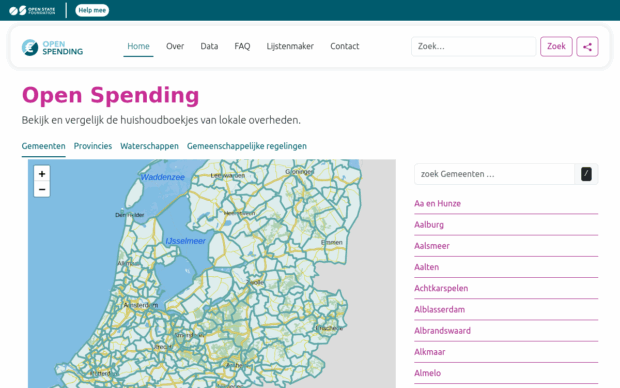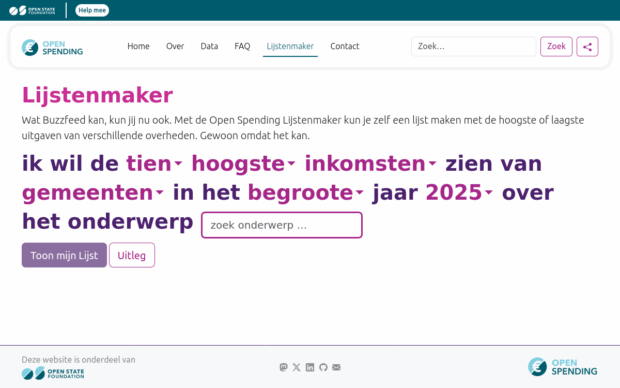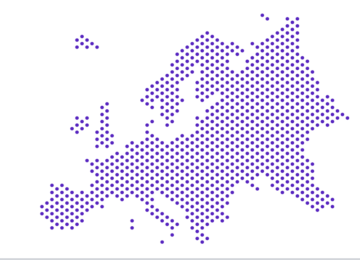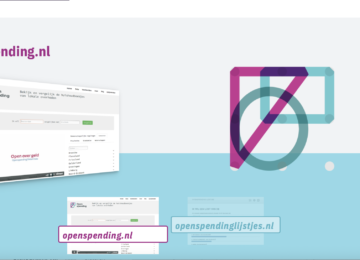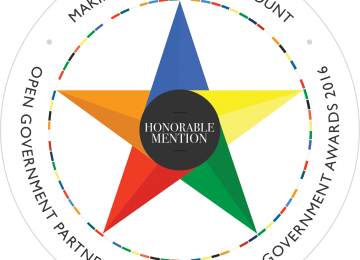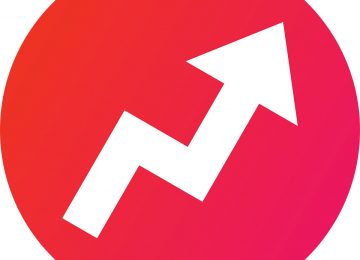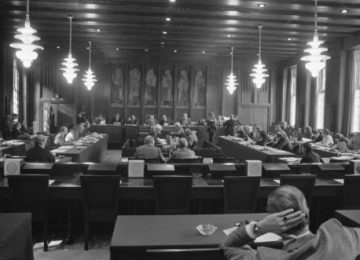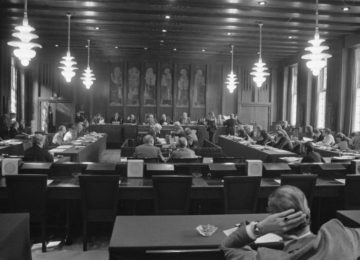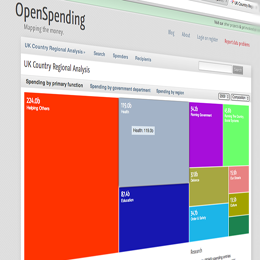In collaboration with the Central Bureau for Statistics (CBS), Open State Foundation launched the project Open Spending. This project is supported by the Dutch Ministry of Interior. The goal of the project is to publish standardized financial detail data of municipalities, provinces, ministries and other governing bodies on the central platform openspending.nl. This provides citizens insight into governing bodies’ financial information. Because not only is it important that citizens can see how their tax money is being spent, it also strengthens monitoring and accountability mechanisms.
Financial data of governing bodies
Dutch governing bodies host an abundance of financial information: Data includes annual and quarterly budgets and expenses of almost 400 municipalities, 12 regional governments (provinces), the water boards and more than 100 common governmental arrangements (public and private co-operations). Publication of this data enables citizens to access financial information. Standardization of this data allows for drawing comparisons between expenses of different governing bodies.
There are different ways in which financial data can be made public. The financial information available on openspending.nl are so-called Iv3 data. The Iv3 data standard contains several categories according to which governing bodies publish their financial data. For example cultural heritage, civil affairs and child protective services. All Dutch governing bodies publish their financial data according to this standard, which enables comparison. However, the Iv3 standard produces aggregated data: it does not provide any detailed insight into the budgets. This way, large sums can be grouped under the category ‘Other’.
To prevent this, financial information can be published as detail data. Financial detail data disaggregate the Iv3 categories into more detailed information. By publishing information about the product group, types of costs and ledger codes can convey how much money is spent on road maintenance, and on traffic signs and permits. The publication of financial detail data produces more meaningful data, allowing citizens to gain a better understanding of the finances of governing bodies. Not only does this encourage the drawing of comparisons, it also strengthens accountability mechanisms between citizens and government. It also encourages more citizen participation, for instance through Right to Challenge projects.
Project Open Spending
In 2013, Open State launched the Open Spending project by publishing financial data from Amsterdam, district Center. In 2014, Open State approached hundreds of municipalities, provinces and water boards with the request to submit their Iv3 data for publication on openspending.nl. In 2015, this resulted in the publication of all financial data of Dutch regional and local governments as open data.
After years of publishing Iv3 data on the platform, Open State wants to take the next step: In 2023, we want to start publishing financial detail data. Currently, we are assembling a steering committee of governing bodies that want to participate. The ultimate goal for Q4 2023 is to publish the financial detail data of this steering committee on openspending.nl.
Publication of Iv3 data
Open State’s Open Spending platform is connected to CBS’s data portal. As a result, over 15.000 reports are publicly available on openspending.nl, making it possible to gain insight into the finances of all local governments. Additionally, it’s possible to draw comparisons between local governments. By publishing this information as machine readable data, citizens have access to revenues and expenditures of local governments. This strengthens the information position of not only citizens, but also journalists and representatives in Parliament.

